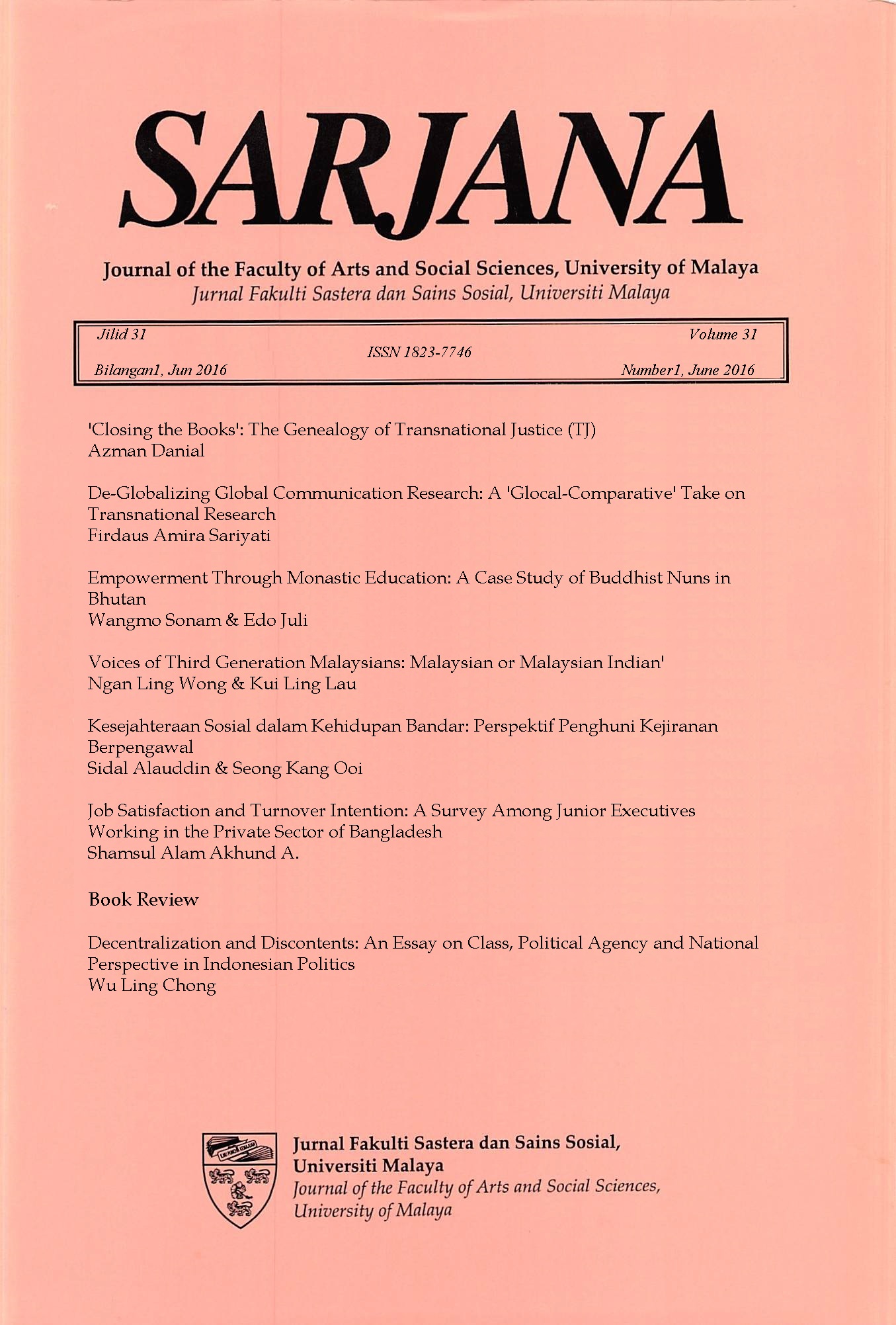'Closing the Books': The Genealogy of Transnational Justice (TJ)
Main Article Content
Abstract
Drawing from secondary literature and three years of fieldwork in various post-conflict societies in Africa, Asia, Europe, and Latin America, this article revisits the conceptual development of a term 'Transitional Justice (TJ) in order to illuminate the political construction and deconstruction of TJ in international politics. Major patterns and themes are identified within the international thought and practice of TJ to unravel its potentials and pitfalls, with the aim to emphasise the difficulty in 'defining justice' in war-torn societies. TJ mechanisms are explored which indicate more culpability for perpetrators and compensation for victims in the midst of authoritarianism and civil wars across the globe. There is an immediate pragmatic need to move beyond rigid and thick legal positivist traditions and going beyond romanticising 'liberal' values that TJ represent in arriving at an epistemological understanding about TJ. As such, and drawing from poststructuralist intellectual strands in International Relations, this article illuminates the unstable binary distinction between the idea that both law and politics represents in 'defining' TJ.

